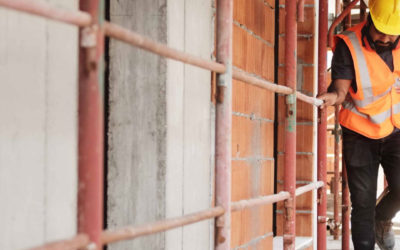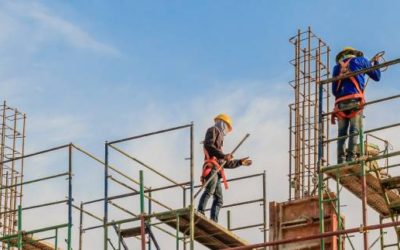ISO 14001: Paving the Way for Sustainability
Australia’s construction industry is a cornerstone of its growing economy, contributing significantly to infrastructure development and urban expansion. However, like its global counterparts, the Australian construction sector also faces the challenge of reducing its environmental footprint. In this blog, we will delve into the specific context of ISO 14001 within the Australian construction industry and how it plays a pivotal role in promoting sustainability and environmental responsibility.
Understanding ISO 14001 in the Australian Context
ISO 14001 is an internationally recognised Environmental Management System (EMS) standard. In the Australian context, it is crucial for construction companies looking to align their practices with the country’s environmental objectives and regulatory requirements.
Why ISO 14001 Matters in Australia’s Construction Sector
- Compliance with Australian Regulations: Australia has stringent environmental regulations in place to protect its unique ecosystems. ISO 14001 provides a structured framework for construction companies to ensure compliance with these regulations, reducing the risk of legal issues and costly penalties.
- Addressing Local Environmental Challenges: Australia faces specific environmental challenges, including water scarcity, bushfires, and habitat conservation. ISO 14001 enables construction companies to tailor their environmental management systems to address these issues effectively.
- Resource Efficiency in a Resource-Scarce Region: The continent’s arid regions highlight the importance of resource efficiency. ISO 14001 helps construction firms in Australia optimise resource utilisation, leading to cost savings and reduced environmental impact.
- Reputation and Stakeholder Expectations: In a nation known for its pristine natural beauty, construction companies that embrace ISO 14001 signal their commitment to environmental stewardship. This resonates with stakeholders, including clients, investors, and the public, enhancing their reputation and competitiveness.
Implementing ISO 14001 in Australian Construction
The implementation of ISO 14001 in the Australian construction industry follows a structured process:
- Commitment from Leadership: Senior management commitment is paramount. It’s essential to allocate resources and set the tone for the organisation’s environmental responsibility.
- Local Context Assessment: Understand the unique environmental challenges and opportunities in Australia’s diverse regions. Tailor your EMS to address these regional variations effectively.
- Legal Compliance: Ensure that your EMS complies with Australian environmental regulations, permits, and reporting requirements.
- Stakeholder Engagement: Involve local communities, Indigenous groups, and other stakeholders in the development and implementation of your environmental initiatives. This fosters goodwill and cultural respect, which is crucial in Australia.
- Training and Capacity Building: Train employees on local environmental issues, sustainable construction practices, and their role in achieving EMS objectives.
- Measurement and Reporting: Implement robust systems for monitoring and measuring environmental performance indicators, such as energy consumption, water usage, and waste generation. Regularly report progress to stakeholders.
- Continuous Improvement: Continually review and update your EMS to stay relevant and responsive to evolving environmental challenges and opportunities.
- Certification: Consider seeking ISO 14001 certification through a recognised certification body. Certification demonstrates your commitment to environmental management to clients and partners.
Challenges and Benefits in the Australian Context
The challenges of implementing ISO 14001 in Australia’s construction industry may include navigating the complexities of regional environmental regulations, addressing Indigenous land management concerns, and adapting to the country’s unique ecological diversity. However, the benefits are substantial. By embracing ISO 14001, construction companies in Australia can reduce their environmental impact, foster positive relationships with local communities, and align with the nation’s commitment to environmental sustainability.
In the Australian construction industry, ISO 14001 is a powerful tool for promoting sustainability and environmental responsibility. By implementing this standard, construction companies can navigate the country’s specific environmental challenges, comply with regulations, and demonstrate their dedication to preserving Australia’s natural beauty. As the construction sector continues to evolve, ISO 14001 serves as a critical step toward building a sustainable future that respects both the environment and the diverse communities that call Australia home.



